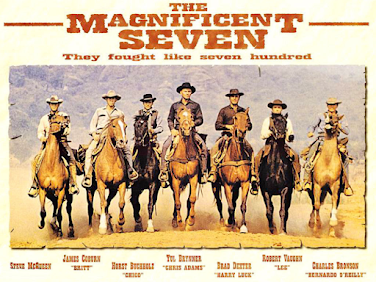Sholay is a classic Indian film released in 1975 that has become a cultural icon in India. The film, directed by Ramesh Sippy, was heavily influenced by the Western genre and transformed the Indian film industry by introducing a new style of storytelling and filmmaking.
Cowboys, gun battles, wild wild west: The Western genre has been a popular and enduring genre in cinema history, characterized by its depictions of the American West, cowboys, outlaws, and lawmen. Sholay incorporated several elements of the Western genre, including its setting in a small village in the Indian state of Uttar Pradesh, a story of revenge, and the portrayal of larger-than-life characters.
Nowhere do writers Salim-Javed copy any situation or scene for the Hollywood or the Sergio Leone classic westerns. The family execution scene has an echo from Leone's Once Upon a Time in the West (1968), that's it for any direct influences. The westerns impact is widely visible in the cinematography and minimal use of background score in key action sequences.
The anti-hero: One of the most significant Western influences in Sholay was its use of the "anti-hero" archetype. In Western films, anti-heroes are often portrayed as flawed characters who possess qualities that make them less than heroic, such as greed or a lack of morality. Sholay's character of Gabbar Singh, played by Amjad Khan, was an anti-hero who was ruthless, violent, and lacked any redeeming qualities. Gabbar Singh was unlike any villain that Indian cinema had seen before, and his portrayal was groundbreaking in the context of Indian cinema.
Buddy system: Another Western influence in Sholay was its use of the "buddy film" trope. In Western films, the buddy film is a popular subgenre that typically features two protagonists who form an unlikely bond and work together to achieve a common goal. Sholay's protagonists, Veeru and Jai, played by Dharmendra and Amitabh Bachchan, respectively, were two very different characters who became friends and worked together to defeat the film's antagonist.
R.D. Burman: Sholay's use of music was also heavily influenced by Western cinema. Western films often use music to enhance the mood and atmosphere of a scene, and Sholay was no different. The film's iconic soundtrack, composed by R.D. Burman, was a fusion of Indian classical music and Western-inspired tunes.
The use of music in Sholay was revolutionary and set a new standard for Indian cinema. My favourite is the opening credits score, that is at once western yet organically Indian.
Sholay was a game-changer for the Indian film industry. It transformed the way Indian filmmakers approached storytelling and introduced a new level of technical excellence to Indian cinema. The film's success paved the way for a new era of Hindi cinema, and its influence can still be seen in Indian films today.















